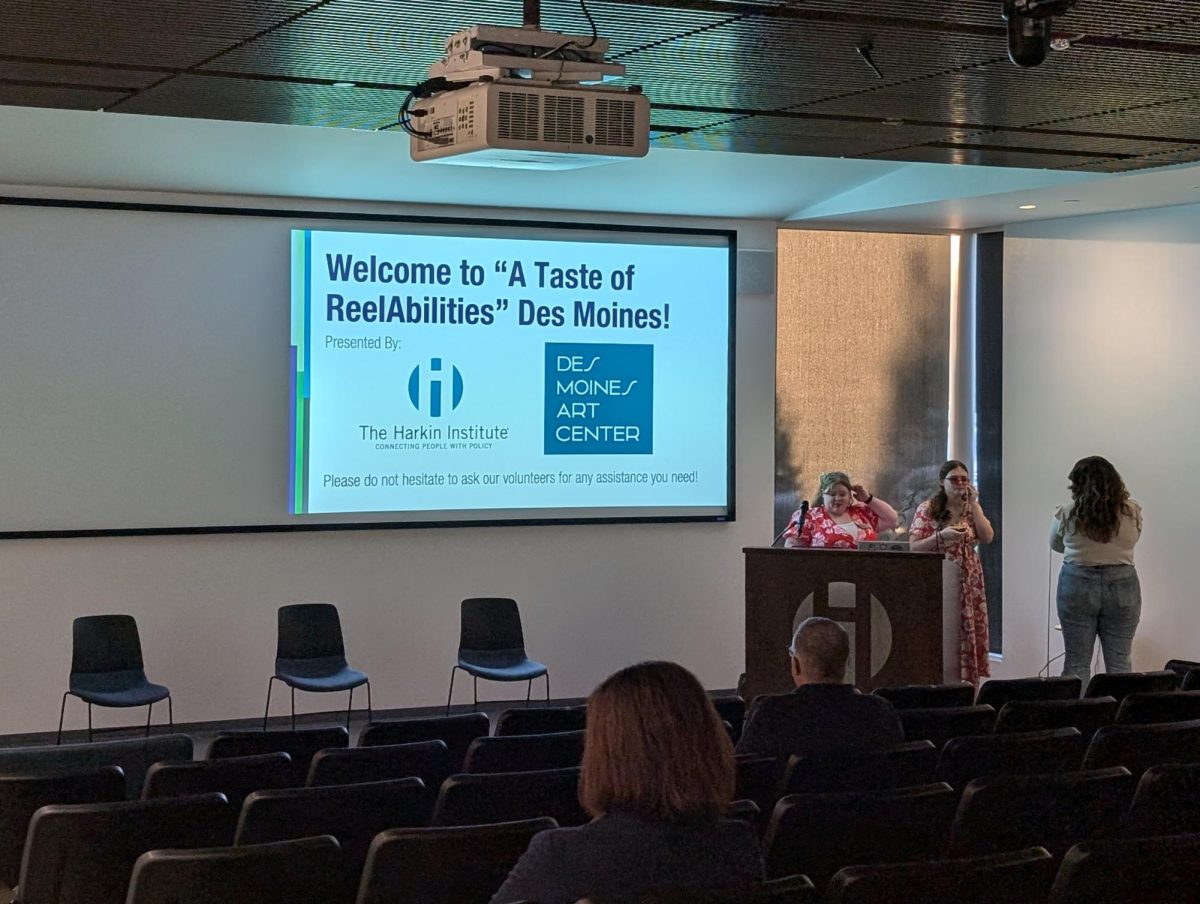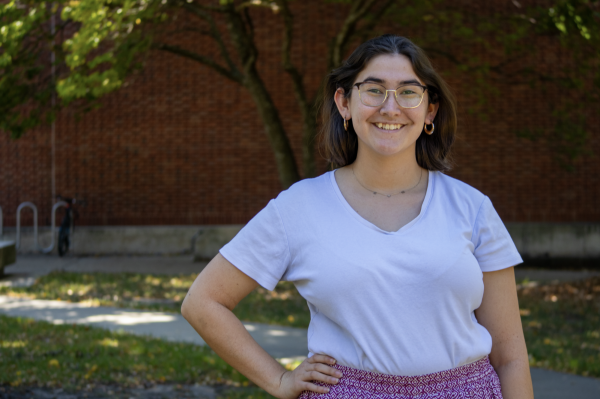This past weekend, Des Moines welcomed “A Taste of Reelabilities,” a film festival featuring films made by and about the disability community. This marked the festival’s first appearance in Des Moines.
The Reelabilities Film Festival is an annual event that has been hosted in New York City since its inception in 2007. Cities across the United States and Canada can host a satellite festival called “A Taste of Reelabilities” and bring films that debuted in New York City to their communities. The Des Moines festival, co-hosted by the Des Moines Art Center and the Harkin Institute, was possible thanks to a grant from The Principal Foundation, the philanthropy branch of Principal Financial.
“It just seemed like the perfect way for us to enter into a more formal collaboration on something, bringing the arts community [and] the disability community together,” said Daniel Van Sant, director of disability policy at the Harkin Institute.
The Des Moines Art Center and the Harkin Institute had worked together previously to introduce Jill Wells as the Harkin Institute’s first Artist Fellow to bridge the gap between art and disability accessibility. However, this was an opportunity for both organizations to widen their reach in the Des Moines community.
“It wasn’t just bringing some art into our work and bringing some disability accessibility into the art center, but let’s do something brand new together that’s never been in our city before,” Van Sant said.
An advisory committee made up of Des Moines community members with various disabilities and intersectional identities viewed seven films — narrowed down from hundreds the festival could choose from — and voted for their top three. The films selected for the Des Moines satellite festival were “OKAY! The ASD Band Film,” “La Lucha (The Fight)” and “Name Me Lawand.”
“It was really important that there was an advisory committee so that it wasn’t just folks from the Harkin Institute and Des Moines Art Center administrators making these decisions for the community,” said Jill Featherstone, senior director of museum learning, engagement and community access for the Des Moines Art Center.
One of the films, “OKAY! The ASD Band Film,” tells the story of four people with autism who came together to create music. Executive producer Andrew Simon flew in from Toronto to speak on a Q&A panel that followed the screening.
Simon, who is also the founder and manager of the band, was inspired to start it when Supertramp and Roger Hodson agreed to perform at a fundraiser for Jake’s House, an organization in Toronto that serves the autism community.
“Doing my research, one of the abilities and talents of people on [the autism] spectrum is music. And, you know, they excel in music,” Simon said. “So what if we were to bring a group of individuals on the spectrum on stage to play?”
After their initial performance, the band stayed together to perform cover songs and eventually write their own music. “OKAY!” tells the story of the band’s growth by going in depth into how the band members were diagnosed with autism and found each other. The band formed right before the COVID-19 pandemic, and the documentary wrapped filming as pandemic restrictions were lifted.
“There was a scene, a very important moment, that actually probably created the reason that we’re going to film it in the first place,” Simon said. “It was like, ‘Oh, wait, there [was] this great concert opportunity that the band would have [had] that ended up getting canceled because of [COVID-19].’”
Simon added that he hopes the film helps people with autism know that they’re not alone and helps the general public to be more empathetic to people with disabilities.
“[People with autism] approach the world differently. That is something that we should all understand; it doesn’t mean it’s wrong, it’s just different,” Simon said.
The Harkin Institute and the Des Moines Art Center hope to make this an annual event to expose audiences to different stories and perspectives, but they encourage the public to engage with their programming year-round.
“Everybody is on their own journey around disability accessibility. Some people are really far down the line,” Van Sant said. “Others are maybe just dipping their toes into disability awareness, and something like these films gives a really safe space for people to come engage with disability on film.”








